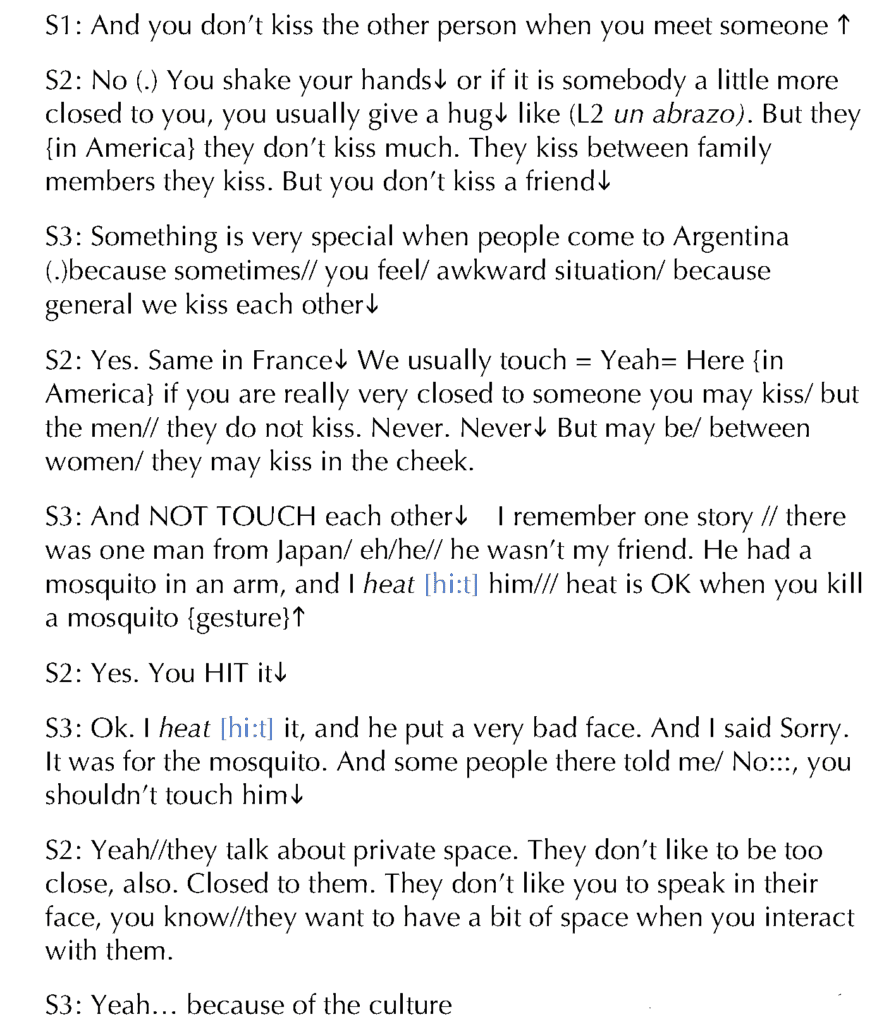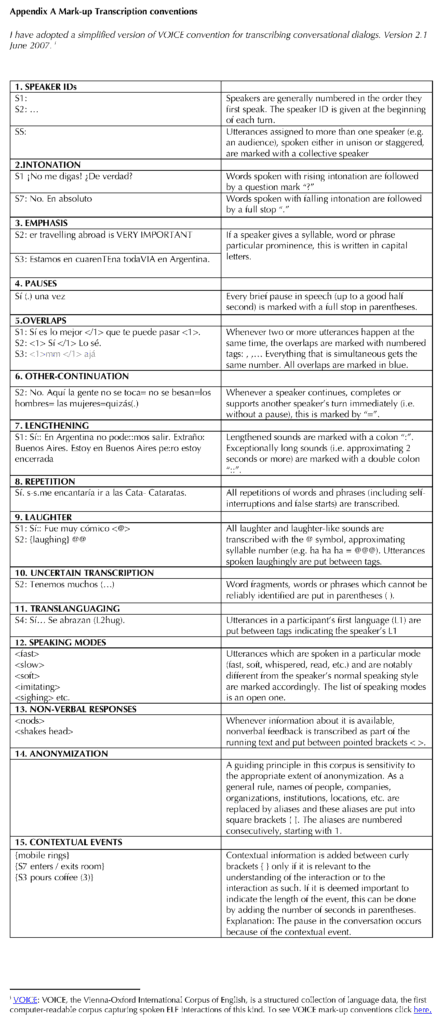By Ruby Shao ’17
To ultimately speak and write well in real life, second language (L2) learners need exposure to authentic multicultural interactions, not the contrived sentences of textbooks. This observation motivated Adriana Merino (Spanish and Portuguese) to lead a Rapid Response Magic Project of the Princeton University Humanities Council called “Promoting Cross-Cultural Understanding Through Exposure to (Online) Intercultural Spoken Interaction.”
Merino began by purchasing audio recordings of casual video chats among native and nonnative speakers of Spanish. Her subjects hail from countries including the United States, Germany, France, Ireland, Colombia, Turkey, and Argentina. They convened as guests of Mate Club de Conversación, a language exchange hub in Argentina. Before moving to the digital sphere because of the pandemic, Mate Club hosted Argentines and travelers from around the globe in bars, supplying an unlimited array of toast, jam, butter, dulce de leche, and mate—a South American beverage that resembles tea—to power visitors through Spanish-English conversations about their cultures. Lasting friendships often developed.
“Someone from another part of the world has a different perspective on the world. It’s so important to listen to that opinion,” Mate Club co-founder Rodrigo de la Mano said. He added that the meetings aim to reduce prejudices by uniting diverse people in a comfortable environment.
The unscripted files bought by Merino constitute a rich corpus, difficult to find and extremely beneficial for L2 students, she noted. With the goal of enhancing the oral comprehension of Spanish learners, her project will unfold in three phases.
The first phase concluded earlier this fall. Using a specialized transcription software, Merino organized and classified the materials to illuminate the processes involved in spoken interaction. Her analysis emphasized the role of social-pragmatic information—behavioral cues that help observers grasp new words—in encounters across different linguistic, sociocultural, and educational backgrounds.

Currently underway, the second phase will generate innovative online resources for Spanish learners. Exercises will span oral comprehension, conversational strategies, and intercultural communication.
Finally, Merino will apply her discoveries to her own teaching. For instance, role-plays and simulations will challenge her students to harness their newfound knowledge of pragmatics, which covers how contextual factors like tone affect meaning.

Merino will share her interdisciplinary work, which integrates pragmatics, second language pedagogy, and technology, for the benefit of other scholars like applied linguists. In particular, she is proposing the concept of the Intercultural Mediator (IM) in multilingual conversations. As the participant who best understands the dynamics of the group, the IM helps fellow participants to correctly interpret figurative language in the situation they are experiencing.
“The project will open up useful avenues for more thorough incorporation of technology in multilingual, multimedia, computer-mediated interaction into second or foreign language education,” Merino wrote, suggesting potential telecollaborations. She added that as the coronavirus shutdown continues reshaping interactions, she may explore new channels for enhancing L2 fluency.
















